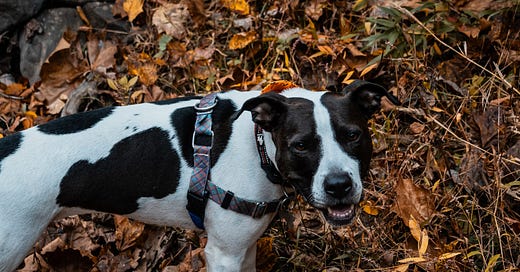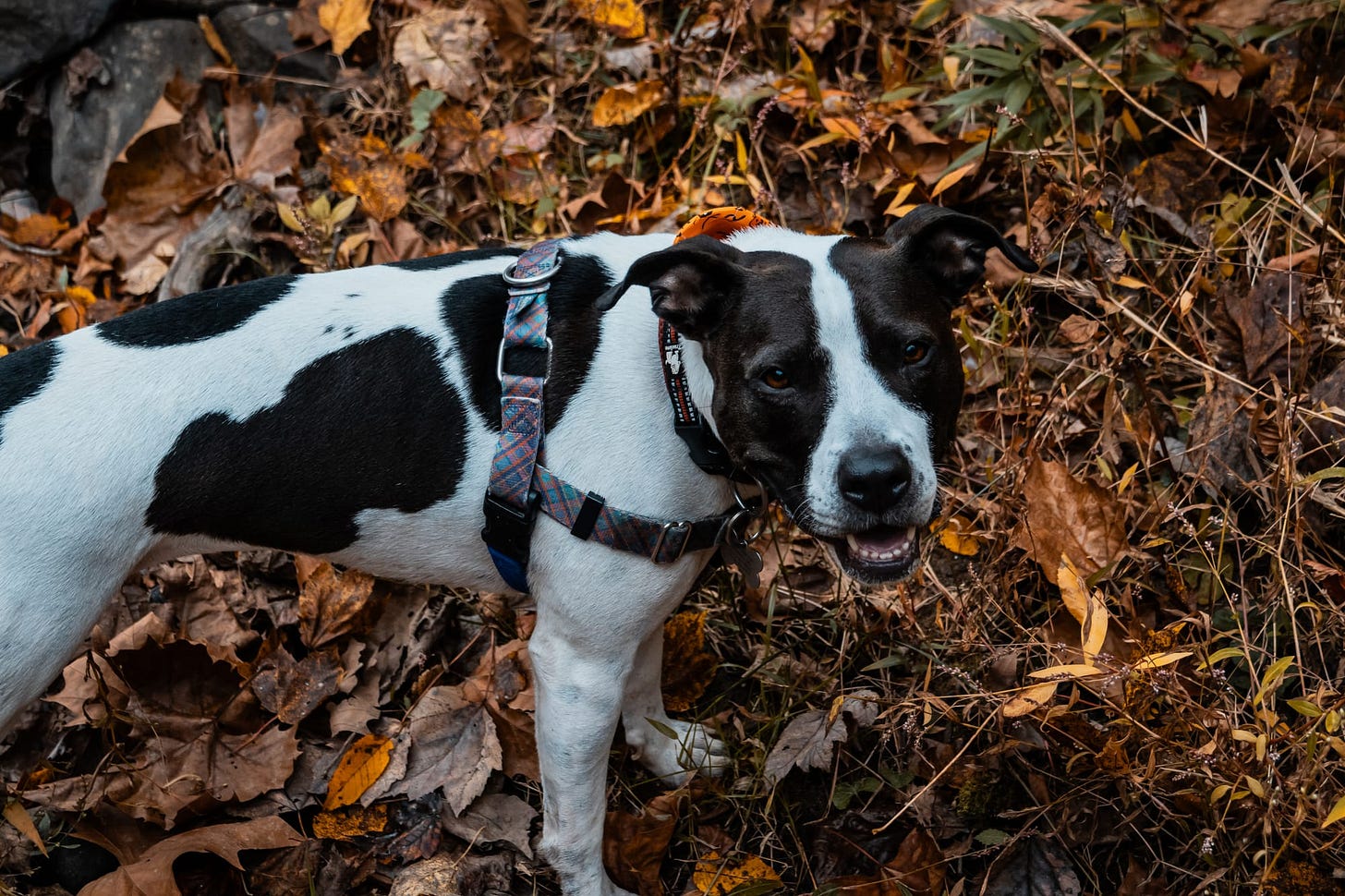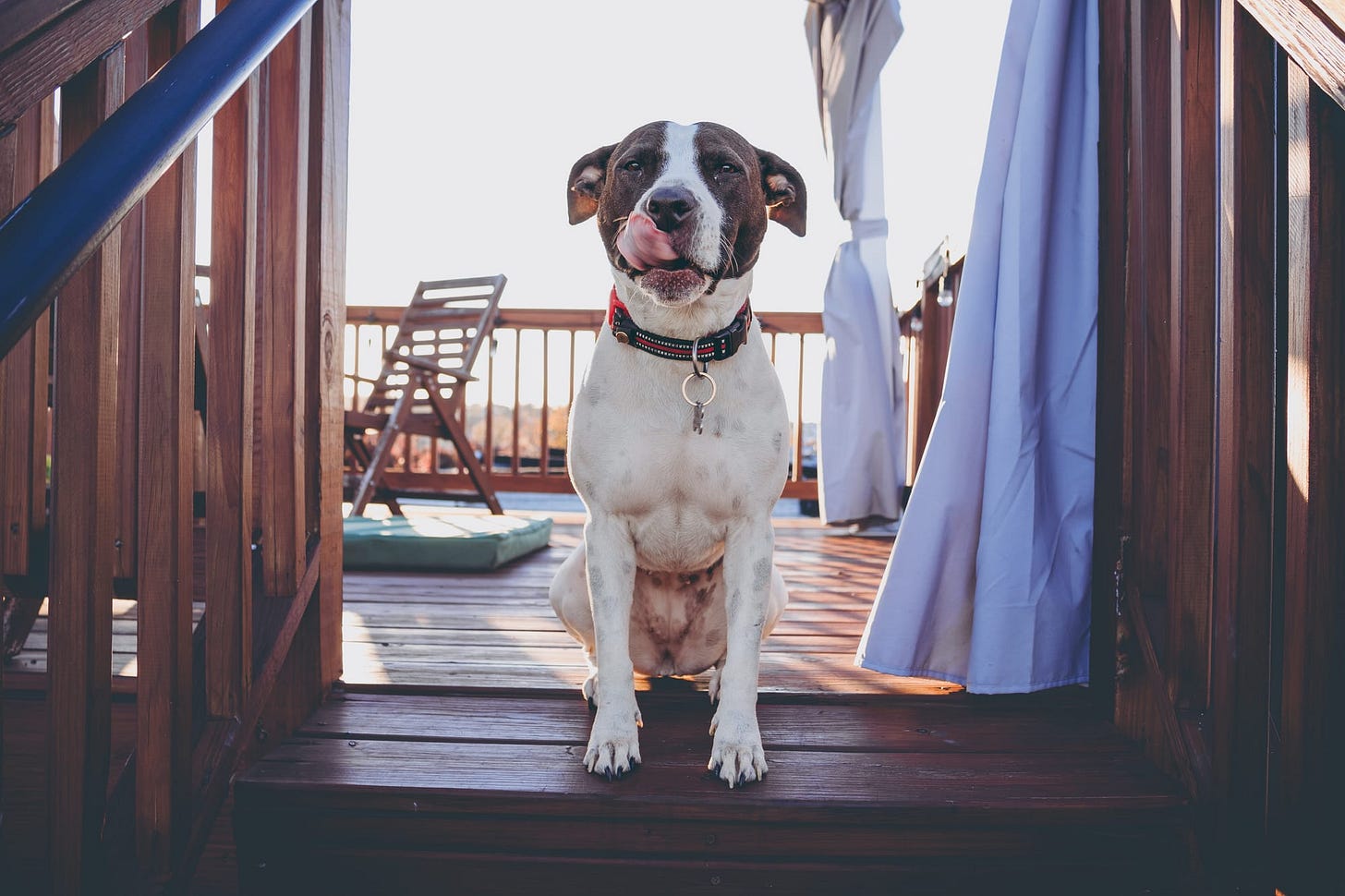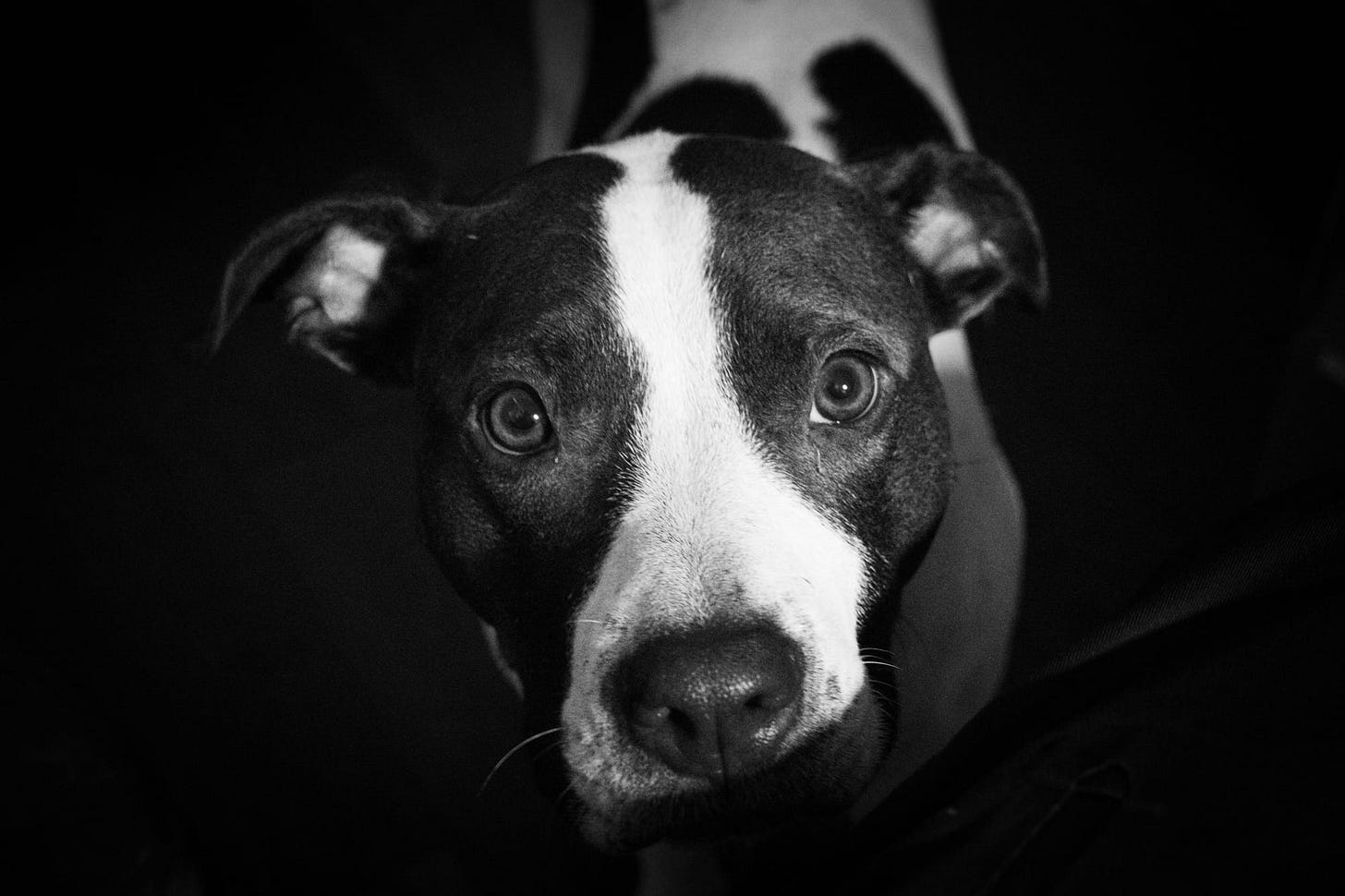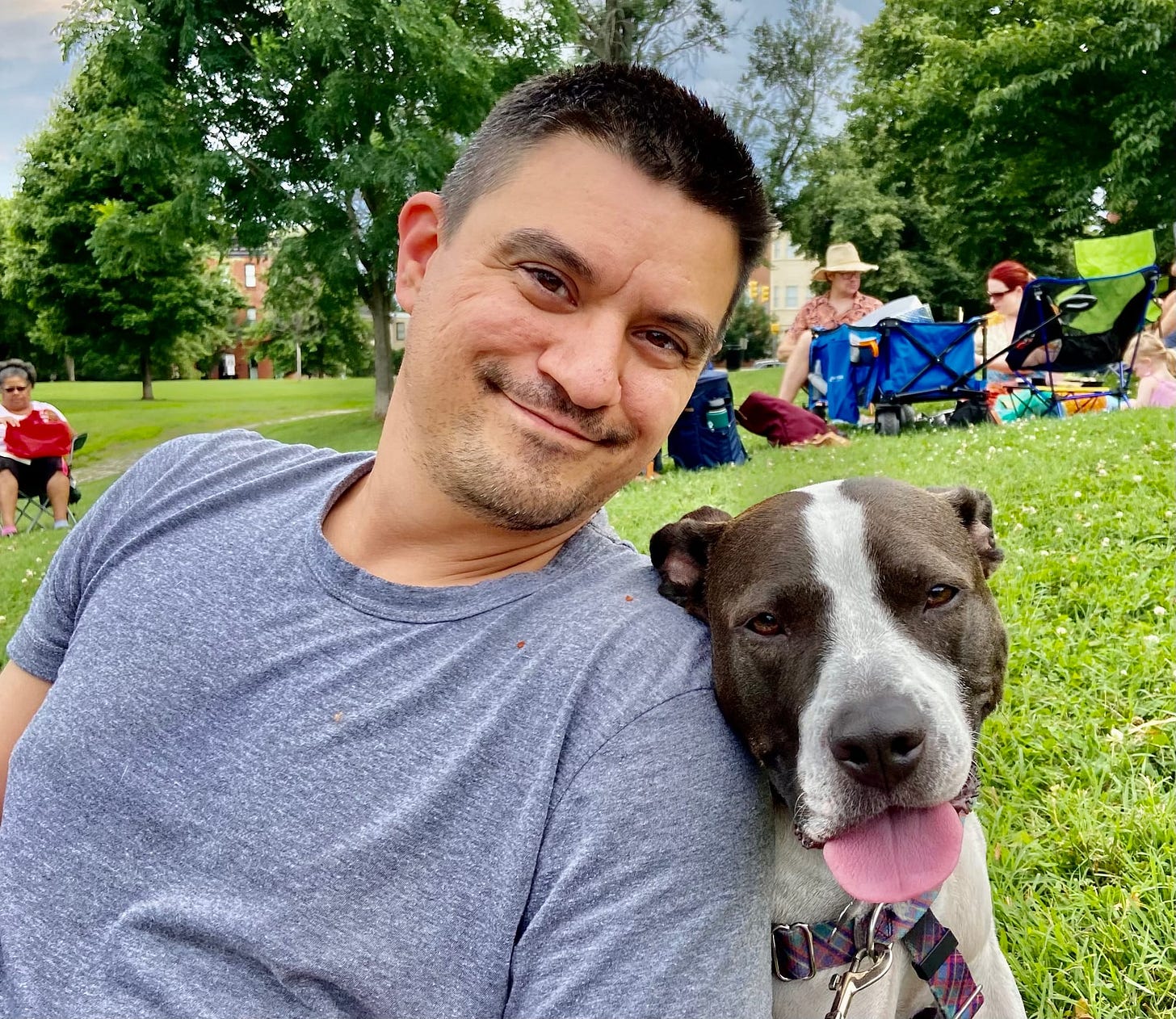Pitbulls: The Ultimate Companion for Life's Adventures
Three years ago, I made one of the best decisions of my life: I rescued and adopted a one-year-old pitbull. This is why it bothers me so much when I hear the prejudice and misconceptions that many people still hold about pitbulls.
Three years ago, I made one of the best decisions of my life: I rescued and adopted a one-year-old pitbull. When I met her, I could tell she was a special dog. She greeted me with a wagging tail, soulful eyes, and an openness to love and be loved.
Since she came into my life, my pitbull has been a constant source of companionship, joy, and unconditional love. She is gentle, kind, playful, and incredibly smart. Watching her doze peacefully in a patch of sun, romp with joyful abandon at the park, or snuggle up close to comfort me when I'm feeling down never fails to melt my heart. She truly is my best friend.
This is why it bothers me so much when I hear the prejudice and misconceptions that many people still hold about pitbulls. The stereotype of the vicious, aggressive pitbull could not be further from the sweet, affectionate goofball curled up at my feet as I write this. It's time to set the record straight about this unfairly maligned breed. Pitbulls can make wonderful, loving companions - and too many of them are sitting in shelters right now, in desperate need of forever homes.
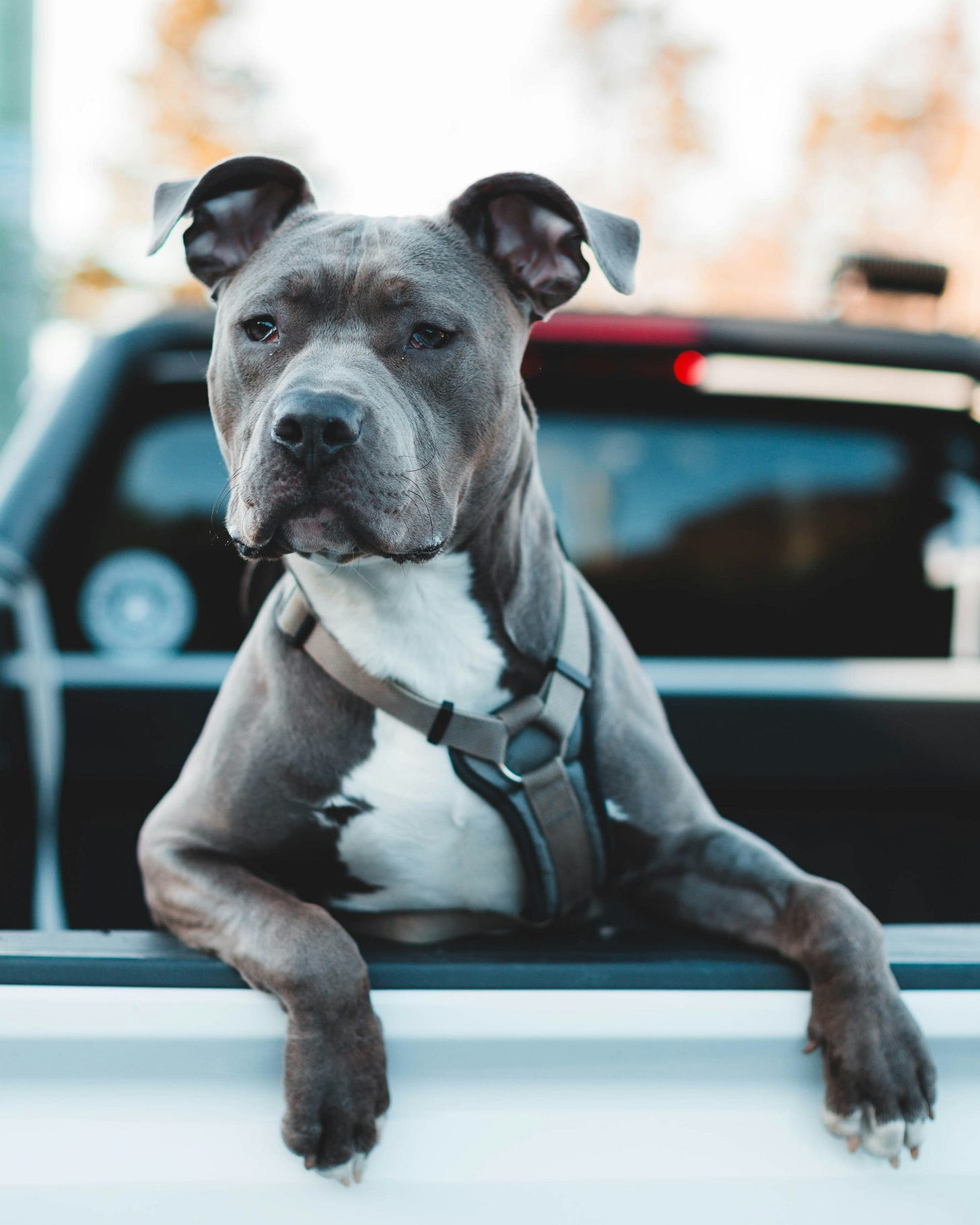
The term "pitbull" doesn't refer to a single breed but rather to a group of breeds, including the American Pit Bull Terrier, American Staffordshire Terrier, American Bully, and Staffordshire Bull Terrier. These muscular, medium-sized dogs were initially bred in the 19th century for the cruel sports of bull-baiting and dog fighting.
When these blood sports were outlawed, pitbulls increasingly began to be kept as companions. Many served heroically in the U.S. military in World Wars I and II. Sergeant Stubby, a pitbull, WWI's most decorated war dog, served in 17 battles and received a medal from General Pershing. The famous RCA Victor "His Master's Voice" dog, Nipper, was a pitbull. Petey, the beloved dog from The Little Rascals, was a pitbull. President Theodore Roosevelt kept a pitbull in the White House. For much of the 20th century, pitbulls were regarded as excellent family dogs known for their gentle and affectionate natures.
Sadly, in the 1980s, there was a resurgence of dogfighting, with pitbulls being the breed of choice. Sensationalized media reports of pitbull attacks and the tough guy image of famous pitbull owners like Mike Tyson created an enduring stigma around the breed. This reputation is undeserved - studies show pitbulls are no more inherently aggressive than other dogs. But the stereotype persists, with devastating consequences. Today, pitbulls are the most overbred and euthanized type of dog. 20% of all dogs in U.S. shelters are pit bulls, and a pit bull is euthanized every 15 minutes. Many municipalities ' breed-specific legislation (BSL) unfairly targets and restricts pitbull ownership. This wonderful, affectionate, loyal breed that was once beloved now faces discrimination and death due to misunderstanding and fear.
Pitbulls are affectionate and devoted companions
One of the most remarkable qualities of pitbulls is their unwavering loyalty and affection towards their owners. Millie, for instance, is always by my side, offering comfort and companionship. Her love is unconditional, and her loyalty is unmatched. Many pitbull owners cherish this bond deeply.
Pitbulls thrive on human interaction and form strong bonds with their families. Pitbulls are known for being affectionate, playful, and goofy. They are patient. They love to cuddle and be petted. They aim to please and are very trainable. Pitbulls often serve as therapy, search and rescue, and service dogs for people with disabilities. That would not be possible if they had an inherently vicious temperament.
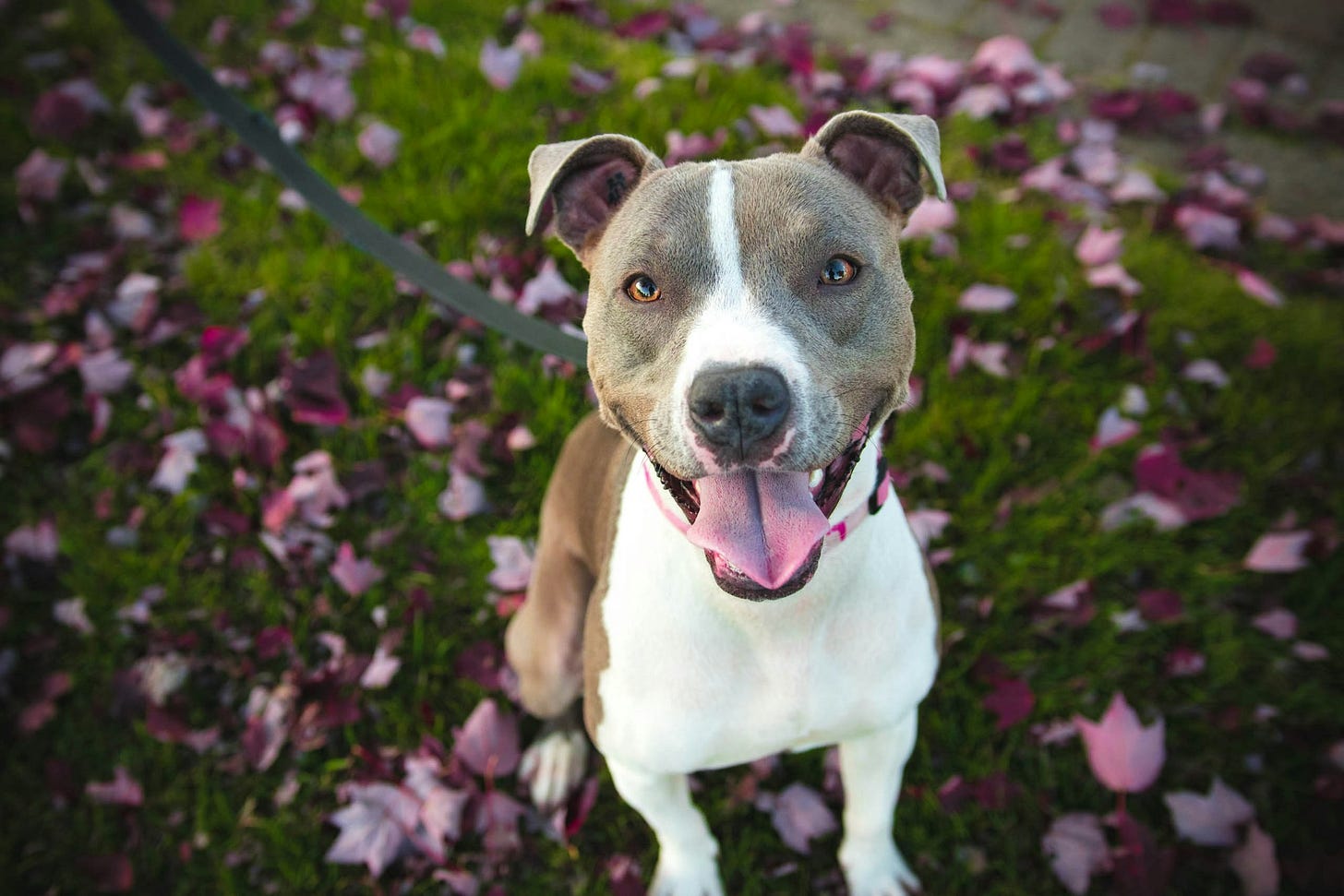
Intelligence and Trainability
Pitbulls are highly intelligent dogs, which makes them very trainable. Millie quickly learned basic commands and even some impressive tricks. This intelligence and their eagerness to please make training a pitbull a rewarding experience. They excel in obedience training, agility courses, and even therapy work.
Given the misconceptions about their behavior, proper training and socialization are crucial for any dog, especially pitbulls. Positive reinforcement techniques work exceptionally well with pitbulls, as they respond best to praise and rewards. Training helps manage their behavior and strengthens the dog's and the owner's bond.
Pitbulls are unfairly stereotyped as dangerous
Pitbulls consistently achieve excellent temperament scores on par with beloved breeds like golden retrievers. They are not disproportionately aggressive towards people or dogs compared to any other breed. Pitbulls who do show aggression invariably have a history of abuse, neglect, or irresponsible ownership. When raised in a loving home and adequately trained and socialized, pitbulls are affectionate and friendly. Sadly, the characteristics that make them great family dogs, like their devotion and eagerness to please, also make them vulnerable to being exploited by unscrupulous people as guard dogs or fighting dogs. Breed-specific legislation has been proven ineffective at improving public safety. The focus should be on responsible pet ownership, not discriminating against an entire breed.
One of the biggest challenges pitbull owners face is overcoming the prejudice and misconceptions about the breed. Pitbulls are often judged harshly due to their appearance and the negative stories circulated by the media. However, the reality is that any dog can exhibit aggressive behavior if not properly raised and trained.
It is important to educate others about the true nature of pitbulls and advocate for responsible pet ownership. Sharing positive stories and experiences can help change the narrative and reduce the stigma surrounding these beautiful dogs.
Too many pitbulls are dying in shelters
One in four dogs euthanized in shelters is a pitbull. Many never make it out of shelters due to widespread restrictions on the breed and the enduring myth that they are inherently dangerous. A pitbull is just as capable of being an excellent companion as any other dog. They are known to bond especially strongly with their families. If you are considering getting a dog, keep an open mind about pitbulls. Visit your local shelter and let these dogs show you how loving and beautiful they are.
Practical Tips
If you decide to welcome a pitbull into your family:
Focus on proper training and socialization from puppyhood. A well-trained dog of any breed is a joy to be around.
Be a responsible owner. Follow leash laws, keep your dog safely contained, and never let them roam unsupervised.
Be your dog's best advocate. Educate others about what great companions pitbulls can be.
Get your pitbull spayed or neutered to avoid contributing to overpopulation.
I cannot imagine my life without my sweet, silly, snuggly pitbull. She brings me so much joy, love, and laughter. She is truly my best friend - and she is no anomaly. Pitbulls can make incredibly devoted and affectionate companions. It breaks my heart to think of all the beautiful dogs dying alone and unloved in shelters because of misconceptions and prejudice. These dogs deserve better. They deserve a chance to love and be loved, just like any other dog. The world would be better with more pitbull companions. I hope more people will come to see the true nature of these special dogs - and maybe even be inspired to open their homes and hearts to a pitbull in need.

